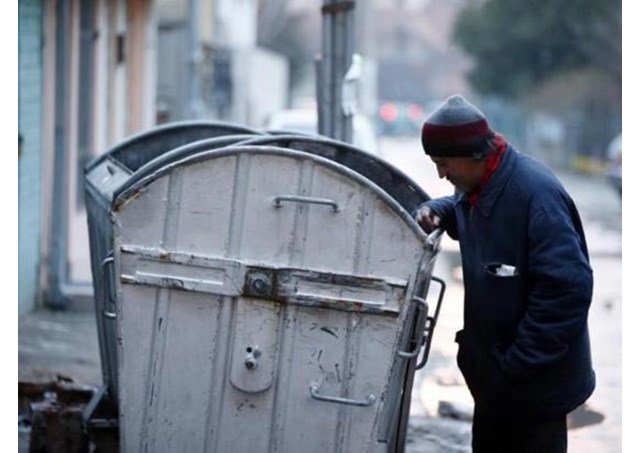
Caritas: 1 in 4 Europeans risk poverty amid globalization of indifference

(Vatican Radio) Pope Francis travelled to the European Parliament in November last year to urge European politicians “to promote policies which create employment and restore dignity to labour by ensuring proper working conditions” and to recover Europe’s leadership when it comes to human rights and dignity.
His appeal reverberates with renewed urgency as EU Finance Ministers meet to decide the fate of Greece in the Eurozone, and a new report on the impact of the economic crisis reveals dismaying levels of poverty and deprivation in the seven weakest EU countries.
Drawn up by Caritas Europa, a network of Caritas organizations in 46 European countries, the report, entitled “Poverty and Inequalities on the Rise – Just social systems needed as the solution” depicts an unfair Europe where social risks are increasing, social systems are being downsized and individuals and families are falling deeper into poverty.
The report challenges suggestions that the worst of the economic crisis is over and shows that after 6 years – still paying for a crisis they didn’t cause – poor people are getting poorer.
The report’s conclusions are based on true life testimonies that Caritas organizations witness through their work with the poor; they highlight that almost 1 in 4 European citizens are living in poverty, that there are serious gaps in the social welfare systems and that the policy of prioritizing austerity is not working.
However, as Caritas Europa Secretary General, Jorge Nuno Mayer points out, the report also offers a series of recommendations and alternative policy solutions directed at politicians whom – he says – have choices when deciding which measures must be taken…
Listen to the interview:
“What we have found is that the crisis is not over by far, and that it is the result of concrete political choices that have been made” says Jorge Nuno Mayer.
He speaks of first-hand evidence that the crisis is not over because “in our parishes and in our projects and Caritas social services we see people arriving every day, and we notice that people who are coming weren’t coming before – people coming from middle classes” he says.
He says that families with children are especially exposed, that young people don’t find employment and don’t find a way to develop their potential through training.
Pointing out the stark and troubling findings, Nuno Mayer says “we also think there is hope and we need to underline the need for hope with politicians who have a major responsibility, not only for having taken decisions that have led to the social impact of this crisis”, but also stressing the fact they have opportunities to do things in a different way.
Nuno Mayer speaks of the inequalities the report has highlighted both within the European countries themselves, and between different countries of the same Eurozone.
“We see that the 10% that is more well off – also in countries like Greece, Spain, Portugal – they have increased their wealth in the last years of the crisis, while those who are not so well off are the middle classes and mainly the 10% that is at the bottom of the society: their situation has worsened very much - inequality within these countries has grown, he says.
But also – Nuno mayer points out - inequality has increased in Europe amongst countries: there are countries in Europe that are getting richer and countries that are getting poorer “and it seems that nobody cares. It is the ‘globalization of indifference’ and this is a worrying trend” he says.
Regarding Pope Francis’ repeated call to make changes to what he has repeatedly called an ‘economy of exclusion’, Nuno Mayer recalls the Pope’s speech to European Parliament members last November when he urged them promote policies of inclusion in the name of human rights and human dignity, and points out that at the conclusion of his hard-hitting discourse, he had some very encouraging words when he recognized Europe’s leadership in human rights and said this mission must be recovered.
Nuno Mayer says the President of the EP, Martin Schulz, has expressed his gratitude for the Pope’s words and has said that European leaders and politicians are in need of this kind of guidance and encouragement “because they are lost – European politicians really don’t know in what way to go”.
“I think that Pope Francis is giving good words of encouragement and hope and we, at Caritas, want to contribute to this mission that the Pope, our leader, is giving by underpinning his messages with the concrete experience of Caritas at grass-roots level, but also with concrete recommendations for the European Institutions and for the member states”.
| All the contents on this site are copyrighted ©. |


